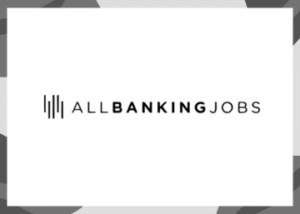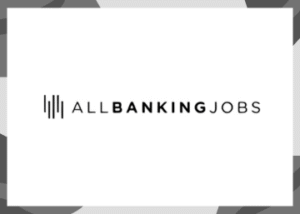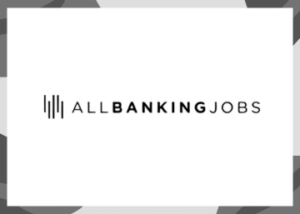Under the Trump administration, the commercial banking sector has experienced significant changes, largely due to his economic policies, including tax cuts, deregulation, and a focus on job creation. These shifts have created new opportunities and challenges for loan officers and relationship managers in commercial banks. As businesses continue to adapt to the evolving regulatory and economic environment, the roles of loan officers and relationship managers are also evolving.
This blog explores the impact of Trump’s economic agenda on commercial banking and the career opportunities that are emerging for professionals in lending and relationship management roles.
1. Deregulation and Its Effect on Commercial Lending
One of the most significant changes under Trump’s administration has been the push for deregulation, particularly in the banking and financial sectors. By loosening some of the regulations that were put in place after the 2008 financial crisis, Trump’s policies have made it easier for banks to lend more freely. For loan officers, this means a more dynamic lending environment where they can offer a broader range of loan products with fewer regulatory constraints.
Commercial loan officers are likely to see an increase in loan origination opportunities, particularly for small and medium-sized businesses that might benefit from easier access to credit. As lending restrictions are relaxed, professionals in this space will need to stay updated on the evolving landscape of regulations while helping businesses take advantage of new financing options.
2. Tax Cuts and Business Expansion
Trump’s corporate tax cuts were designed to stimulate economic growth by lowering the tax burden on businesses. This has led to increased profitability for many corporations, making it easier for them to secure loans for expansion and operational growth. For commercial loan officers, this translates to an increased demand for business loans as companies look to invest in infrastructure, equipment, and new projects.
Loan officers will need to adapt to the changing financial needs of these businesses, offering tailored loan products that align with the growth opportunities created by tax reform. Additionally, these professionals will need to have a deeper understanding of business financing, from working capital loans to equipment financing, to effectively serve their clients.
3. Emerging Opportunities in Small Business Lending
Trump’s economic policies have been particularly beneficial to small businesses. By offering tax incentives and deregulating certain industries, the administration has made it easier for small businesses to access credit. The expansion of small business lending is expected to be a key area of growth for loan officers in the coming years.
Relationship managers, who focus on developing strong client relationships, will be in high demand to serve the growing number of small businesses seeking financing. These professionals will need to become experts in the specific needs of small businesses and offer solutions that align with their goals for growth. As small businesses often rely heavily on personalized banking services, relationship managers will need to maintain a high level of customer service while also staying up to date on new lending products and government incentives.
4. Increased Focus on Relationship Management
As commercial banks seek to build long-term relationships with business clients, the role of relationship managers has become increasingly important. With deregulation making it easier for businesses to access credit, relationship managers will be tasked with offering more than just loans—they’ll need to provide ongoing financial advice, risk management solutions, and personalized banking services to help their clients navigate a rapidly changing business landscape.
Relationship managers will need to be strategic thinkers, offering holistic financial solutions that go beyond traditional lending. They’ll also need to maintain close relationships with their clients, ensuring that they stay engaged with evolving business needs and helping them manage their finances during times of growth or economic uncertainty.
5. Technology Integration in Commercial Banking
Trump’s push for economic growth has been accompanied by increased investments in technology across various industries, including banking. As commercial banks modernize their systems to handle higher volumes of loans and streamline their operations, loan officers and relationship managers will need to adapt to the use of advanced banking technology.
Digital banking platforms, AI-powered credit scoring models, and automated loan processing systems are becoming more common in the commercial banking space. Loan officers will need to become proficient in using these tools to evaluate loan applications, track customer needs, and manage relationships. Meanwhile, relationship managers will need to balance the use of technology with the personal touch that clients expect, ensuring that technology enhances the customer experience rather than replacing it.
6. Preparing for Economic Uncertainty
While Trump’s policies have sparked economic growth, they have also introduced elements of uncertainty, particularly around trade tariffs and global economic relations. Commercial banks, especially those with international exposure, will need to carefully monitor the economic landscape to anticipate potential disruptions in their clients’ businesses.
Loan officers and relationship managers will need to help businesses prepare for uncertainty by offering financial products that can help mitigate risks. This might include working capital lines of credit for companies facing cash flow issues or structuring loans that provide flexibility in case of unforeseen economic events.
Conclusion
Trump’s economic policies have significantly reshaped the commercial banking sector, with new opportunities emerging for loan officers and relationship managers. The combination of deregulation, tax cuts, and a focus on business growth has created a more dynamic environment for lending, particularly in small business financing. To succeed in this evolving landscape, banking professionals will need to adapt to new technologies, stay updated on regulatory changes, and develop strong relationships with clients to provide tailored financial solutions.
If you’re a loan officer or relationship manager looking to navigate these changes, All Banking Jobs can help you find the right career path that aligns with the evolving demands of the commercial banking sector. With the right skills and expertise, you can seize the opportunities that Trump’s economic agenda is creating in the banking industry.






